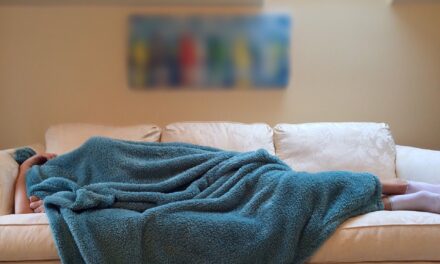Have you ever woken up in the middle of the night feeling like you were suffocating and couldn’t move? If so, you might have experienced sleep paralysis. Sleep paralysis is a common phenomenon that will affect a large percentage of the population at some point in their lives.
Sleep paralysis is a temporary inability to move or speak that occurs in the waking state after a period of sleep. It can be a terrifying experience that leaves you feeling helpless and vulnerable. In this article, we will discuss sleep paralysis symptoms and causes to help you gain a better understanding of what is happening during this time.
What to expect from our article
What is sleep paralysis?
Sleep paralysis is a medical condition in which a person has difficulty moving or speaking either while asleep or upon waking. It usually occurs when you are just about to drift off to sleep or are just waking up. There are a number of distinct phases that occur during sleep, ranging from light sleep to deep sleep to rapid eye movement (REM) sleep. Dreaming occurs during rapid eye movement (REM) sleep. Muscle paralysis during REM sleep is normal, as it stops us from acting out our dreams. However, in some cases, this paralysis continues even after a person has woken up.
Sleep paralysis symptoms
The symptoms of sleep paralysis can be both terrifying and upsetting and can include the following:
Inability to move or speak
When experiencing sleep paralysis, a person loses the ability to move or speak. They may feel as though they are trapped in their bodies.
Crushing or suffocation sensation
During sleep paralysis, some people report feeling as though they are being suffocated or even crushed, as if a heavy weight were pressing down on their chest and stopping them from moving.
Hallucinations
Sleep paralysis can be accompanied by vivid hallucinations, which can be terrifying. This can include things like hearing or seeing things that aren’t there, like demons or ghosts.
Feeling of being watched or touched
Some people who experience sleep paralysis also report a feeling of being watched or touched by someone else in the room.
What Causes Sleep Paralysis?
The exact cause of sleep paralysis is unknown, but there are several potential explanations for it. Some examples are:
Disrupted sleep patterns
Sleep paralysis is more common in people who have disrupted sleep patterns, such as those who work night shifts or have irregular sleep schedules.
Sleep deprivation
Sleep deprivation or sleep impairment may also play a role in the development of sleep paralysis.
Stress and anxiety
Sleep paralysis is more common in people who are experiencing high levels of stress and anxiety.
Narcolepsy
Narcolepsy is a sleep disorder characterised by extreme daytime sleepiness and unexpected bouts of sleep. It’s also linked to sleep paralysis.
Genetics
Given that sleep paralysis frequently occurs in the same families, genetics may be to blame.
Treatment for sleep paralysis
At the moment, there is no treatment that can completely get rid of sleep paralysis, but it can be controlled in different ways. For example:
Improving sleep hygiene
Practising better sleep hygiene has been shown to lessen the occurrence of sleep paralysis. Methods that contribute to a good night’s sleep include maintaining a regular bedtime routine, avoiding the use of caffeine and alcohol, and making your bedroom a relaxing space to unwind in.
Managing stress and anxiety
Sleep paralysis may be less likely to happen if you learn how to better manage stress and anxiety. This can include practising relaxation techniques such as meditation and deep breathing exercises.
Treating underlying sleep disorders
If sleep paralysis is associated with an underlying sleep disorder, such as narcolepsy, treating the underlying disorder may help reduce the frequency of sleep paralysis.
Medications
Treatment for sleep paralysis may include the use of medication. Anti-depressants and anti-anxiety drugs have helped some sufferers.














